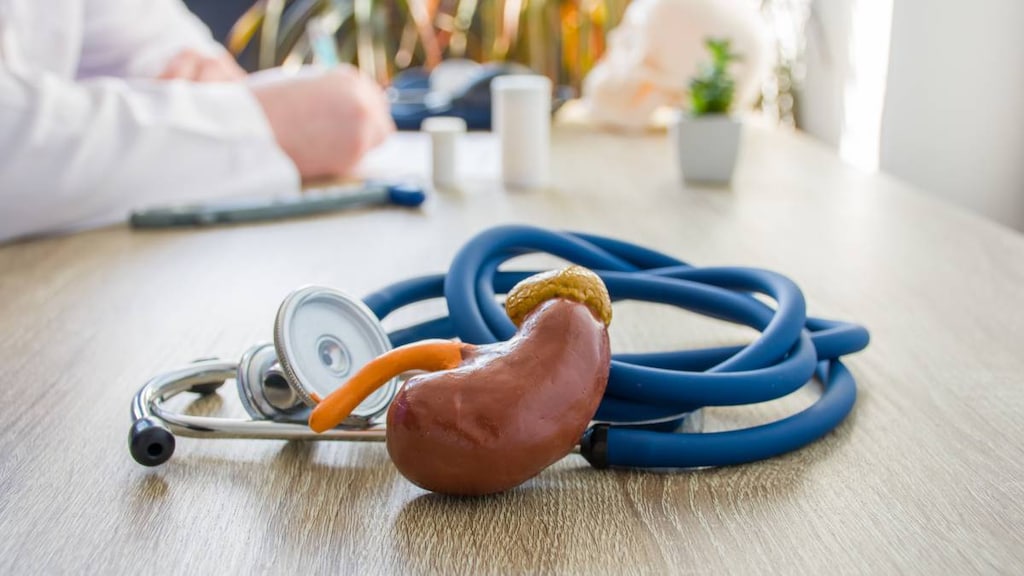What is Keytruda?
Keytruda is a prescription medicine used to treat:
- a kind of skin cancer called melanoma. Keytruda may be used:
- when your melanoma has spread or cannot be removed by surgery (advanced melanoma), or
- to help prevent melanoma from coming back after it and lymph nodes that contain cancer have been removed by surgery.
- a kind of lung cancer called non-small cell lung cancer (NSCLC).
- Keytruda may be used with the chemotherapy medicines pemetrexed and a platinum as your first treatment when your lung cancer:
- has spread (advanced NSCLC), and
- is a type called “nonsquamous”, and
- your tumor does not have an abnormal “EGFR” or “ALK” gene.
- Keytruda may be used with the chemotherapy medicines carboplatin and either paclitaxel or paclitaxel protein-bound as your first treatment when your lung cancer:
- has spread (advanced NSCLC), and
- is a type called “squamous”.
- Keytruda may be used alone as your first treatment when your lung cancer:
- has not spread outside your chest (stage III) and you cannot have surgery or chemotherapy with radiation or
- your NSCLC has spread to other areas of your body (advanced NSCLC), and
- your tumor tests positive for “PD-L1”, and
- does not have an abnormal “EGFR” or “ALK” gene.
- Keytruda may also be used alone when:
- you have received chemotherapy that contains platinum to treat your advanced NSCLC, and it did not work or it is no longer working, and
- your tumor tests positive for “PD-L1”, and
- if your tumor has an abnormal “EGFR” or “ALK” gene, you have also received an EGFR or ALK inhibitor medicine and it did not work or is no longer working.
- Keytruda may be used with the chemotherapy medicines pemetrexed and a platinum as your first treatment when your lung cancer:
- a kind of cancer called head and neck squamous cell cancer (HNSCC).
- Keytruda may be used with the chemotherapy medicines fluorouracil and a platinum as your first treatment when your head and neck cancer has spread or returned and cannot be removed by surgery.
- Keytruda may be used alone as your first treatment when your head and neck cancer:
- has spread or returned and cannot be removed by surgery, and
- your tumor tests positive for “PD-L1”.
- Keytruda may be used alone when your head and neck cancer:
- has spread or returned, and
- you have received chemotherapy that contains platinum and it did not work or is no longer working.
- a kind of cancer called classical Hodgkin lymphoma (cHL):
- in adults when:
- your cHL has returned or
- you have tried a treatment and it did not work, or
- in children when:
- you have tried a treatment and it did not work or
- your cHL has returned after you received 2 or more types of treatment.
- in adults when:
- a kind of cancer called primary mediastinal B-cell lymphoma (PMBCL) in adults and children when:
- you have tried a treatment and it did not work or
- your PMBCL has returned after you received 2 or more types of treatment.
- a kind of bladder and urinary tract cancer called urothelial carcinoma.
- Keytruda may be used when your cancer has not spread to nearby tissue in the bladder, but is at high-risk for spreading (high-risk non-muscle-invasive bladder cancer [NMIBC]) when:
- your tumor is a type called “carcinoma in situ” (CIS), and
- you have tried treatment with Bacillus Calmette-Guerin (BCG) and it did not work, and
- you are not able to or have decided not to have surgery to remove your bladder.
- Keytruda may be used when your bladder or urinary tract cancer:
- has spread or cannot be removed by surgery (advanced urothelial cancer) and,
- you are not able to receive chemotherapy that contains platinum (medicines called either cisplatin or carboplatin), or
- you have received chemotherapy that contains platinum, and it did not work or is no longer working.
- Keytruda may be used when your cancer has not spread to nearby tissue in the bladder, but is at high-risk for spreading (high-risk non-muscle-invasive bladder cancer [NMIBC]) when:
- a kind of cancer that is shown by a laboratory test to be a microsatellite instability-high (MSI-H) or a mismatch repair deficient (dMMR) solid tumor. Keytruda may be used in adults and children to treat: It is not known if Keytruda is safe and effective in children with MSI-H cancers of the brain or spinal cord (central nervous system cancers).
- cancer that has spread or cannot be removed by surgery (advanced cancer), and
- has progressed following treatment, and you have no satisfactory treatment options.
- a kind of cancer called colon or rectal cancer. Keytruda may be used as your cancer:
- has spread or cannot be removed by surgery (advanced colon or rectal cancer), and
- has been shown by a laboratory test to be microsatellite instability-high (MSI-H) or mismatch repair deficient (dMMR).
- a kind of stomach cancer called gastric or gastroesophageal junction (GEJ) adenocarcinoma.
- Keytruda may be used with the medicine trastuzumab with fluoropyrimidine and platinum chemotherapy as your first treatment when your stomach cancer:
- is HER2-positive, and
- has spread or cannot be removed by surgery (advanced gastric cancer).
- Keytruda may be used alone when your stomach cancer:
- tests positive for “PD-L1”, and
- has returned or spread (advanced gastric cancer), and
- you have received 2 or more types of chemotherapy, including fluoropyrimidine and chemotherapy that contains platinum, and it did not work or is no longer working, and
- if your tumor is HER2-positive, you also received a HER2-targeted medicine and it did not work or is no longer working.
- Keytruda may be used with the medicine trastuzumab with fluoropyrimidine and platinum chemotherapy as your first treatment when your stomach cancer:
- a kind of cancer called esophageal or certain gastroesophageal junction (GEJ) carcinomas that cannot be cured by surgery or a combination of chemotherapy and radiation therapy.
- Keytruda may be used with platinum- and fluoropyrimidine-based chemotherapy medicines.
- Keytruda may be used alone when:
- you have received one or more types of treatment, and it did not work or it is no longer working, and
- your tumor is a type called “squamous”, and
- your tumor tests positive for “PD-L1”.
- a kind of cancer called cervical cancer that tests positive for “PD-L1.” Keytruda may be used when your cervical cancer:
- has returned, or has spread or cannot be removed by surgery (advanced cervical cancer), and
- you have received chemotherapy, and it did not work or is no longer working.
- a kind of liver cancer called hepatocellular carcinoma, after you have received the medicine sorafenib.
- a kind of skin cancer called Merkel cell carcinoma (MCC) in adults and children. Keytruda may be used to treat your skin cancer when it has spread or returned.
- a kind of kidney cancer called renal cell carcinoma (RCC).
- Keytruda may be used with the medicine axitinib as your first treatment when your kidney cancer has spread or cannot be removed by surgery (advanced RCC).
- Keytruda may be used with the medicine lenvatinib as your first treatment when your kidney cancer has spread or cannot be removed by surgery (advanced RCC).
- a kind of uterine cancer called endometrial carcinoma. Keytruda may be used with the medicine lenvatinib:
- when a laboratory test shows that your tumor is not microsatellite instability-high (MSI-H) or mismatch repair deficient (dMMR), and
- you have received anti-cancer treatment, and it is no longer working, and
- your cancer cannot be cured by surgery or radiation (advanced endometrial carcinoma).
- a kind of cancer that is shown by a test to be tumor mutational burden-high (TMB-H). Keytruda may be used in adults and children to treat:
- solid tumors that have spread or cannot be removed by surgery (advanced cancer), and
- you have received anti-cancer treatment, and it did not work or is no longer working, and
- you have no satisfactory treatment options.
It is not known if Keytruda is safe and effective in children with TMB-H cancers of the brain or spinal cord (central nervous system cancers).
- a kind of skin cancer called cutaneous squamous cell carcinoma (cSCC). Keytruda may be used when your skin cancer:
- has returned or spread, and
- cannot be cured by surgery or radiation.
- a kind of cancer called triple-negative breast cancer (TNBC).
- Keytruda may be used with chemotherapy medicines as treatment before surgery and then continued alone after surgery when you:
- have early-stage breast cancer, and
- are at high risk of your breast cancer coming back.
- Keytruda may be used with chemotherapy medicines when your breast cancer:
- has returned and cannot be removed by surgery or has spread, and
- tests positive for “PD-L1”.
- Keytruda may be used with chemotherapy medicines as treatment before surgery and then continued alone after surgery when you:
What is the most important information I should know about Keytruda?
Keytruda is a medicine that may treat certain cancers by working with your immune system. Keytruda can cause your immune system to attack normal organs and tissues in any area of your body and can affect the way they work. These problems can sometimes become severe or life-threatening and can lead to death. You can have more than one of these problems at the same time. These problems may happen anytime during treatment or even after your treatment has ended.
Call or see your healthcare provider right away if you develop any new or worsening signs or symptoms, including:
Lung problems
- cough
- shortness of breath
- chest pain
Intestinal problems
- diarrhea (loose stools) or more frequent bowel movements than usual
- stools that are black, tarry, sticky, or have blood or mucus
- severe stomach-area (abdomen) pain or tenderness
Liver problems
- yellowing of your skin or the whites of your eyes
- severe nausea or vomiting
- pain on the right side of your stomach area (abdomen)
- dark urine (tea colored)
- bleeding or bruising more easily than normal
Hormone gland problems
- headaches that will not go away or unusual headaches
- eye sensitivity to light
- eye problems
- rapid heartbeat
- increased sweating
- extreme tiredness
- weight gain or weight loss
- feeling more hungry or thirsty than usual
- urinating more often than usual
- hair loss
- feeling cold
- constipation
- your voice gets deeper
- dizziness or fainting
- changes in mood or behavior, such as decreased sex drive, irritability, or forgetfulness
Kidney problems
- decrease in your amount of urine
- blood in your urine
- swelling of your ankles
- loss of appetite
Skin problems
- rash
- itching
- skin blistering or peeling
- painful sores or ulcers in your mouth or in your nose, throat, or genital area
- fever or flu-like symptoms
- swollen lymph nodes
Problems can also happen in other organs and tissues. These are not all of the signs and symptoms of immune system problems that can happen with Keytruda. Call or see your healthcare provider right away for any new or worsening signs or symptoms, which may include:
- chest pain, irregular heartbeat, shortness of breath, swelling of ankles
- confusion, sleepiness, memory problems, changes in mood or behavior, stiff neck, balance problems, tingling or numbness of the arms or legs
- double vision, blurry vision, sensitivity to light, eye pain, changes in eyesight
- persistent or severe muscle pain or weakness, muscle cramps
- low red blood cells, bruising
Infusion reactions that can sometimes be severe or life-threatening. Signs and symptoms of infusion reactions may include:
- chills or shaking
- itching or rash
- flushing
- shortness of breath or wheezing
- dizziness
- feeling like passing out
- fever
- back pain
Rejection of a transplanted organ. Your healthcare provider should tell you what signs and symptoms you should report and monitor you, depending on the type of organ transplant that you have had.
Complications, including graft-versus-host-disease (GVHD), in people who have received a bone marrow (stem cell) transplant that uses donor stem cells (allogeneic). These complications can be serious and can lead to death. These complications may happen if you underwent transplantation either before or after being treated with Keytruda. Your healthcare provider will monitor you for these complications.
Getting medical treatment right away may help keep these problems from becoming more serious.
Your healthcare provider will check you for these problems during treatment with Keytruda. Your healthcare provider may treat you with corticosteroid or hormone replacement medicines. Your healthcare provider may also need to delay or completely stop treatment with Keytruda if you have severe side effects.
What should I tell my healthcare provider before using Keytruda?
Before receiving Keytruda, tell your healthcare provider about all of your medical conditions, including if you:
- have immune system problems such as Crohn’s disease, ulcerative colitis, or lupus
- have received an organ transplant
- have received or plan to receive a stem cell transplant that uses donor stem cells (allogeneic)
- have received radiation treatment to your chest area
- have a condition that affects your nervous system, such as myasthenia gravis or Guillain-Barré syndrome
- are pregnant or plan to become pregnant. Keytruda can harm your unborn baby.
Females who are able to become pregnant:- Your healthcare provider will give you a pregnancy test before you start treatment with Keytruda.
- You should use an effective method of birth control during and for at least 4 months after the final dose of Keytruda. Talk to your healthcare provider about birth control methods that you can use during this time.
- Tell your healthcare provider right away if you think you may be pregnant or if you become pregnant during treatment with Keytruda.
- are breastfeeding or plan to breastfeed. It is not known if Keytruda passes into your breast milk. Do not breastfeed during treatment with Keytruda and for 4 months after your final dose of Keytruda.
Tell your healthcare provider about all the medicines you take, including prescription and over-the-counter medicines, vitamins, and herbal supplements.
How should I use Keytruda?
- Your healthcare provider will give you Keytruda into your vein through an intravenous (IV) line over 30 minutes.
- In adults, Keytruda is usually given every 3 weeks or 6 weeks depending on the dose of Keytruda that you are receiving.
- In children, Keytruda is usually given every 3 weeks.
- Your healthcare provider will decide how many treatments you need.
- Your healthcare provider will do blood tests to check you for side effects.
- If you miss any appointments, call your healthcare provider as soon as possible to reschedule your appointment.
What are the possible side effects of Keytruda?
Keytruda can cause serious side effects. See "What is the most important information I should know about Keytruda?"
Common side effects of Keytruda when used alone include: feeling tired, pain, including pain in muscles, bones or joints and stomach-area (abdominal) pain, decreased appetite, itching, diarrhea, nausea, rash, fever, cough, shortness of breath, and constipation.
Side effects of Keytruda when used alone that are more common in children than in adults include: fever, vomiting, upper respiratory tract infection, headache, and low levels of white blood cells and red blood cells (anemia).
Common side effects of Keytruda when given with certain chemotherapy medicines include: feeling tired or weak, nausea, constipation, diarrhea, decreased appetite, rash, vomiting, cough, trouble breathing, fever, hair loss, inflammation of the nerves that may cause pain, weakness, and paralysis in the arms and legs, swelling of the lining of the mouth, nose, eyes, throat, intestines, or vagina, mouth sores, headache, weight loss, stomach-area (abdominal) pain, joint and muscle pain, and trouble sleeping.
Common side effects of Keytruda when given with axitinib include: diarrhea, feeling tired or weak, high blood pressure, liver problems, low levels of thyroid hormone, decreased appetite, blisters or rash on the palms of your hands and soles of your feet, nausea, mouth sores or swelling of the lining of the mouth, nose, eyes, throat, intestines, or vagina, hoarseness, rash, cough, and constipation.
Common side effects of Keytruda when given with lenvatinib include: low levels of thyroid hormone, high blood pressure, feeling tired, diarrhea, joint and muscle pain, nausea, decreased appetite, vomiting, mouth sores, weight loss, stomach-area (abdominal) pain, urinary tract infection, protein in your urine, constipation, headache, bleeding, blisters or rash on the palms of your hands and soles of your feet, hoarseness, rash, liver problems, and kidney problems.
These are not all the possible side effects of Keytruda.
Call your healthcare provider for medical advice about side effects. You may report side effects to FDA at 1-800-FDA-1088.
General information about the safe and effective use of Keytruda
Medicines are sometimes prescribed for purposes other than those listed in a Medication Guide. You can ask your pharmacist or healthcare provider for information about Keytruda that is written for health professionals.
What are the ingredients in Keytruda?
Active ingredient: pembrolizumab
Inactive ingredients:
Keytruda injection: L-histidine, polysorbate 80, sucrose, and Water for Injection, USP.
For more information, go to www.keytruda.com.





